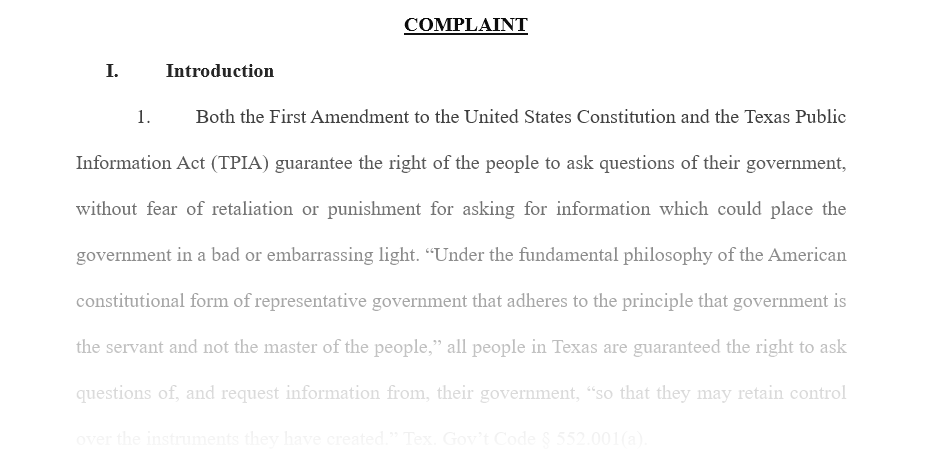I am no lawyer or an expert in the legal system However, through my personal experience (over the last three years), I have learned a little bit. In general, the whole legal process starts out with the process of filing a complaint and receiving an answer in a federal lawsuit. Which means the above title is a little misleading. Keep in mind that legal procedures can vary based on jurisdiction and specific circumstances. Here’s a general overview of the process and where I am in that process:
Filing the Complaint
A federal lawsuit begins when the plaintiff (the party bringing the lawsuit) files a formal document called a complaint in the appropriate federal court. The complaint outlines the allegations, legal claims, and the relief sought (compensation or remedy). In my partial case, this was submitted to Federal Court on July 14th, 2023.
Serving the Defendant
After filing the complaint, the plaintiff must ensure that a copy of the complaint, along with a summons issued by the court, is properly served on the defendant (the party being sued). Service is necessary to give the defendant notice of the lawsuit and an opportunity to respond. All defendants were served pretty promptly. I was actually impressed on how fast process servers and the summons process took place.
Defendant's Answer
Once served, the defendant has a specified period, usually around 21 days, to respond to the complaint. The response is typically called an “Answer.” In the Answer, the defendant admits or denies each allegation in the complaint and may also assert affirmative defenses or counterclaims against the plaintiff. When my case was filed, the defendants had until August 6th, 2023 (if my memory is correct) to submit their answers.
Around August 4th, 2023 the defendants counsel reached out. They requested a 45-day extension to file their answers. According to my lawyer, it is customary to grant such a request. I trust my lawyer and SMU; they have done nothing but great things for me.
However, a 45-day extension? In my mind, I was thinking…. Well, what I was thinking is a story for another day.
Now, the next deadline is September 20th, 2023. There is a bit of a twist in this story that brings up some question.
- It seems that all three defendants were now being represented by one law firm. I’m not sure the legalities of posting who that firm is at the moment, so I’ll hold off of that.
- The Town of Prosper is not using their typical contracted legal firm they use for everything else, wonder why? I guess when you’re a town using tax-payers money, you can afford to think outside to the box! Get the best representation you possible can!
- One of the defendants has not worked for the Town or Prosper in over a year (could have been longer) – yet is being represented by the same firm that is representing the Town of Prosper. I find this – interesting.
Affirmative Defenses and Counterclaims
Affirmative defenses are legal arguments that, if proven, would undermine the plaintiff’s case. Counterclaims are claims made by the defendant against the plaintiff. Both of these are intended to provide a more complete picture of the dispute from the defendant’s perspective.
Preliminary Motions
Before proceeding further, either party may file preliminary motions. For example, the defendant might file a motion to dismiss the case if they believe the complaint lacks legal merit. The plaintiff might file a motion for summary judgment if they believe there’s no genuine dispute of material fact.
Discovery
Once the initial pleadings are complete, both parties engage in the discovery process. This involves exchanging information, documents, and evidence related to the case. Discovery helps both sides gather evidence and build their arguments.
Pre-Trial Motions and Settlement Attempts
If the case isn’t settled, both parties prepare for trial. This includes preparing witnesses, exhibits, legal arguments, and other trial-related materials.
Trial Preparation
If the case isn’t settled, both parties prepare for trial. This includes preparing witnesses, exhibits, legal arguments, and other trial-related materials.
Trial
The trial takes place in front of a judge or a jury, depending on the nature of the case. Both parties present their evidence, examine witnesses, and make legal arguments to support their positions
Judgment
The judgment phase in a civil court case is the stage where the court renders its final decision based on the evidence, arguments, and legal principles presented by both parties. This phase typically follows a trial, during which each party had the opportunity to present their case, cross-examine witnesses, and provide evidence in support of their claims or defenses.


 My name is Leonard H. Johnson. I have held numerous titles over the years, which include, butcher, roofer, auto-mechanic, author, application developer. I love fishing, Xbox, Diablo and my family. I've managed to earn my MS, MBA, & PMP. I have +6 to sarcasm and a level 12 mastery in being a smart ass.
My name is Leonard H. Johnson. I have held numerous titles over the years, which include, butcher, roofer, auto-mechanic, author, application developer. I love fishing, Xbox, Diablo and my family. I've managed to earn my MS, MBA, & PMP. I have +6 to sarcasm and a level 12 mastery in being a smart ass.





